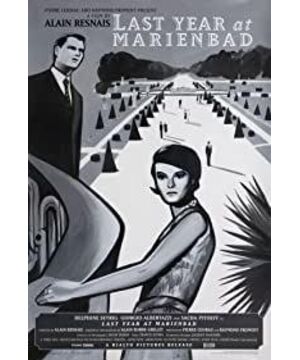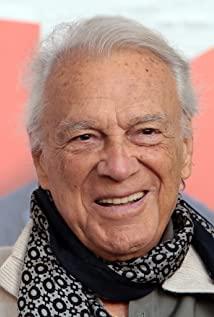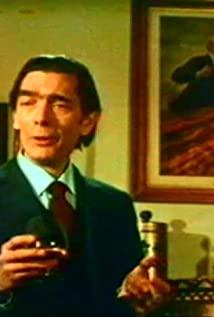runs through the leading motive represented by the pipe organ. Its tone belonging to the old style of the past controls the tone of the film. The gloom, tenderness, frenzy, doubt and persistence all flow in the slightly hoarse melody of the pipe organ.
The occasional orchestral music in the film is worth pondering, it appears four times (strictly speaking, five times), as the opening and closing music, and in the film itself, it appears in the opening play. After the dramatic performance of the play, and in the second half of the episode, when the heroine begins to be a little bit persuaded by the hero. It should be said that the motives represented by the orchestral music are extremely subtle. At first it seems to represent the realization of escape from the theme, but when it appears after the end of the theatrical performance, it means that this is only the audience's vague appreciation of the realization of the unreality in art. And was quickly replaced by the dominant pipe organ; when it appeared in the second half, it showed the heroine's beginning to submit with a high-spirited attitude, but this attitude was always accompanied by the shadow of the pipe organ, and within a few tens of seconds Once again overwhelmed by the organ. If the orchestra is always squeezed by the pipe organ in the film itself, and always presents a paradox that cannot be affirmed, then as the opening and closing music, it seems to indicate the reality of the audience outside the film. The world represents the conviction of the law of contradiction.
But it is still the organ that dominates the whole film, and its sound often drowns out even the activities of the characters themselves. At the end, the heroine finally leaves with the hero, but the organ continues, which means that the ending is not a realization, but remains in an ancient, gloomy flow. We don't hear the orchestral melody again in the closing credits until we get out of the film itself, so we breathe a sigh of relief.
Crowds and Segments
After the play, before the hero and heroine begin to make contact, there is a strange conversation. They were intermittent and unnamed, and they seemed to be talking about a rumor, and they seemed to be preparing a conspiracy. From time to time, people seem to be alluding to the later plot, but it doesn't quite match it. After all, the so-called similarity is just an accidental collision between images?
What the male protagonist witnesses is a man just following a woman, speaking of the unbearable distance and silence between them, who keeps asking him to keep quiet; what the heroine witnesses is two men talking about a certain incident. , their conversations are constantly being drowned out by the pipe organ, the really important plots cannot be heard, and only inexplicable clips are occasionally sent out, 28 years or 29 years? a beautiful woman? Frozen summer?
Who is Frank? It is said that he once tried to seduce a woman. Is he the protagonist? It seems not. He was here last year? It doesn't seem to be there. The name Frank cleverly reminds us that all the characters in this film cannot be actually referred to. The identity and the name appear and are erased at the same time. Everyone may have a name, but the name is just a signifier, floating in the flow of the organ. , even the male and female protagonists.
The man who might be the husband and his game
He moves stiffly, has only one expression, and he plays a game that he always wins. But we can see that his expression is a kind of helplessness to himself, to his destiny that he always wins. The male protagonist played with him three times and always lost. But every time the male protagonist loses, he looks at the man with a confident expression. It seems that the defeat of this game just establishes his confidence in winning another kind of victory.
He may or may not be the heroine's husband, it doesn't matter. He wandered outside the two-person world of the hero and heroine, always seeming to want to intervene in a rigid manner. Is he the reason for the heroine's indecision? Is he the enemy the hero wants to defeat? It doesn't seem to be the case. The male protagonist doesn't take him seriously. He challenges him three times, but wins his confidence from his failure; He has no confidence in himself, and although he always wins the game, he is sure that he will be abandoned. We may call him Mr. Necessity, a necessity that feels helpless and pessimistic about itself.
But the real beginning of this story begins with his game after all. Mr. Necessity says he has a game, he always wins, the hero says it's not a game to always win, Mr. Necessity says that I may lose, but I always win . The game must be based on chance and probability. This game is provided by Mr. Necessity, but he cannot prove the legitimacy of the game by letting himself lose, because he is the inevitability, and the inevitability cannot be eliminated because it comes from itself. paradox is suspended.
The male protagonist lost the first time he challenged the game, but it was on the only remaining card that represented his defeat that the female protagonist burst into laughter.
The real story begins.
C'est impossible?
The male protagonist talks continuously, but intermittently. Is he really looking back on what happened in the past? Is he really helping the heroine find memories? Or is he just a paranoid? A con man trying to kidnap the heroine? None of this matters.
We see that his reminiscences often conflict with what appears to be the heroine's own recollections, when the hero's usual dispassionate narration is also confused: no, no! So is he fabricating a reality for himself? Or is the heroine making up her too?
But whether the male protagonist is really in the present tense is itself questionable, and it is equally doubtful whether the main axis of the story really unfolds entirely in the present tense. If we only read the Chinese subtitles, it is easy to ignore the fact that the final departure of the heroine and the heroine happened in the narration of the hero in the past tense. If the male protagonist's purpose is to awaken some kind of real memory, or to lure the female protagonist to leave with him with a lie, then he will not succeed in the end, because the ending of both departures did not happen in the present tense, it Still in a continuous past tense narrative. The past tense does not represent the fact that it happened, and if it did, it would contradict the non-occurrence in the present tense.
It is through this impossible contradiction that the past holds another time and space, a possible time and space. The male protagonist keeps trying to integrate the world of possibilities he narrates into the heroine's thoughts, and the heroine keeps resisting, C'est impossible! This is impossible! The heroine kept begging the hero to leave her alone to maintain her original world. She finally tried to grab Mr. Inevitability as the last straw, but Mr. Inevitability reluctantly predicted that she would eventually leave.
Induced by the narration of the male protagonist, the female protagonist also begins to produce this kind of narration that only exists in possibility, but the former and the latter often conflict and fail to fully integrate. The scene where the male protagonist walks into the room of the female protagonist wearing a white feather coat is a crucial confrontation. It presents two versions: the first is that the female protagonist is horrified to see the intrusion of the male protagonist, and the second is that the female The protagonist opens his arms to welcome the arrival of the male protagonist. The former shows the heroine's resistance to this narrative, while the latter is the male protagonist's tough modification of the former, in which the orchestral music seeps into the organ motive in a very reluctant manner, which means A vague crossover. In the end, Mr. Necessity left the heroine to go to the drama performance. The heroine completely lost the space to retreat and had to succumb to the agreement of the hero. Finally, the two left together.
So the heroine is lost forever, in this indifferent geometric garden without any mystery, alone with the hero, lost in the past continuous tense. The past tense never materializes and never disappears, it goes on and on.
View more about Last Year at Marienbad reviews










